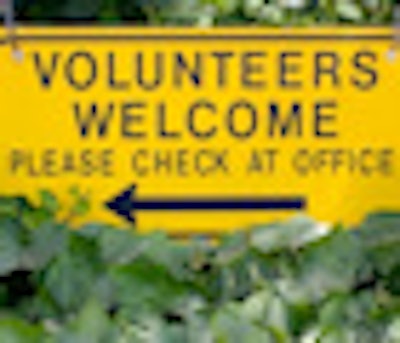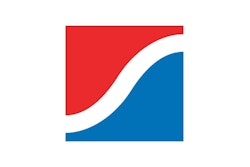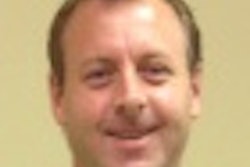
This isn't the first time Kanyon Keeney, D.D.S., has been part of a medical mission preparing to go to Haiti. But it is the first time he's doing it in the face of such devastation.
Dr. Keeney is one of a number of dental professionals who are mobilizing to help in the wake of this week's massive earthquake in Haiti. From treating facial lacerations and oral infections to providing longer-term restorative care in a country that for the time being has no water or electricity, they are putting their personal and professional lives on hold to bring aid to thousands of injured Haitians.
Here are some of their stories.
Time is critical
“By the time I get there, I don't think I'll be there to take out teeth.”
— Kanyon Keeney, D.D.S., oral and
maxillofacial surgeon
An oral and maxillofacial surgeon based in Glen Allen, VA, Dr. Keeney is part of a multispecialty medical group that for years has been providing medical and dental care to needy communities in Haiti, Belize, Guatemala, and Cambodia.
They had already been planning a trip to Haiti February 1; now, Dr. Keeney said in an interview with DrBicuspid.com, they are hoping to get there sooner, possibly even next week. Time is critical when it comes to treating the kinds of injuries he expects to encounter, he emphasized.
"To be the first team of responders when wounds are fresh is critical," he said. "I'm afraid that by the time we get down there we will be treating a lot of infections. From a dental perspective, when trauma and injury take place, infections are more likely. And as time goes on, dental infections will likely become more rampant. So infections from untreated broken jaws and lacerations will be our first line to address."
But with initial relief efforts stalled by impassable roads, an unusable harbor, and collapsed buildings -- including the clinic in Cite Soleil where he and his team work each year and the dorm they usually stay in -- Dr. Keeney said their presence right now might be more of a burden, especially for the organization that is sponsoring them, Christian Services International.
"The logistics are so devastatingly difficult to get down there right now," he said. "The bulk of the relief that comes in the form of food and water can't even get in because the port has been destroyed. The cranes that offload the supplies are underwater, and the road leading to the harbor has buckled. So the only way to get in is by air. And while the airport is open, you can't get enough bulk [supplies] in that way."
Once there, the group hopes to extend its stay beyond the usual seven days to two weeks or more, he added.
|
Dental companies sending aid
|
"I usually do more head/neck and ENT stuff, but by the time I get there I don't think I'll be there to take out teeth," he said. "I'll be dealing more with facial injuries. And I think there will be secondary injuries as they recover more people and there are secondary collapses. As people become more desperate, those homes that haven't completely collapsed will be reinhabited."
More help on the way
Volunteers with the Baudin Haiti Dental Mission, founded by David Schubert, D.D.S., of Plainfield, IL, also hope to be in Haiti next week, according to Dr. Schubert -- if their plane is able to land.
"I am taking a group there next Friday (January 22), a trip that was planned prior to the earthquake, but the most recent reports say there is no place to land and no fuel," he told DrBicuspid.com. "We are planning to do what relief work we can [in Port-au-Prince], as well as up in the mountains where our parish is. There is a lot of rebuilding to do."
The mission has been going to Haiti three times a year for the past 13 years and has built a small dental clinic in Baudin, a rural mountain community about 40 miles south of Port-au-Prince, he said. The clinic is part of a parish that includes a rectory, school, and church. The earthquake spared the dental clinic but caused extensive damage to the other buildings, according to Dr. Schubert (click here to see pictures).
While they won't initially be able to get to Baudin -- "the roads are not passable," he said -- they will be working in Port-au-Prince with a hospice to provide care there. They plan to stay through January 30.
"I doubt we will do much dentistry other than facial lacerations or caring for knocked-out teeth," he said. "I assume we will be doing more medical treatment."
No water or electricity
Ihor Suszko, D.D.S., a general practice dentist in Vermilion, OH, and founder of the Cap Haitien Dental Institute (located on the north coast of Haiti), said his organization expects to provide much-needed care to many displaced Port-au-Prince residents in the coming months.
"We have a group scheduled to go down in February, and I'll be going down with another group in March," he said. "We are not a search and rescue team or a relief organization. But we do have a permanent teaching institute, and we send teams to do World Health Organization (WHO) programs in oral health in Cap Haitien and the surrounding communities."
Their services follow guidelines set out by the WHO to provide comprehensive oral healthcare to Third World countries in a very efficient, sustainable, and affordable way, he added -- something he believes will be critical going forward.
"We don't practice dentistry there the way we do in North America," he said. "We use atraumatic restorative treatment, which is a very accepted method of providing dental care in Third World countries because it does not require water and electricity. And right now, there is no water or electricity in Haiti. So this program will allow us to do something to help."
Dr. Suszko is actively seeking other dental professionals who are interested in volunteering in Haiti, he added.
"If a group is interested in going, we can train them on how to do these techniques and go into an area like Port-au-Prince and really make a difference," he said. "Once the search and rescue, recovery, and relief efforts are completed, all of these other efforts will be needed. Our work will not be done."
If you are interested in making a donation to the Haiti relief effort, click here for a list of charities that are active in Haiti.



















